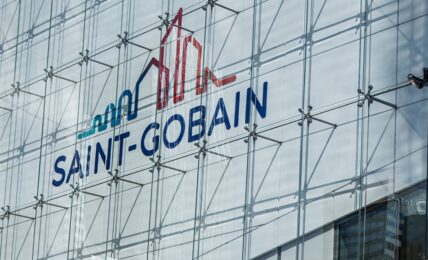Aerospace giant Airbus announced that easyJet has become the first airline globally to join its Airbus Carbon Capture Offer’s carbon removal initiative, utilizing Direct Air Carbon Capture and Storage (DAC) to help achieve the airline’s aviation decarbonization goals.
The aviation industry accounted for nearly 3% of global energy-related CO2 emissions in 2022 and emissions have been steadily climbing to over 1 billion tons before the pandemic. Because of a boom in travel since the pandemic, emissions in 2022 reached 80% of their pre-pandemic levels. The industry has set a goal for net-zero emissions by 2050, largely through carbon capture and sustainable aviation fuel.
DAC technology filters and removes CO2 emissions directly from the air using high powered extraction fans. Once removed from the air, the CO2 is separated from stored in underground reservoirs. CO2 emissions released into the atmosphere during aircraft operations cannot be directly eliminated at source, but with DAC, an equivalent amount can be extracted from the air. The International Energy Agency says that captured CO2, rather than being stored in underground reservoirs, could be used to create synthetic aviation fuels which will reduce the industry’s emissions.
Thomas Haagensen, Group Markets Director at easyJet, said:
“Decarbonising a hard to abate sector, such as aviation, is a huge challenge and we believe carbon removal will play an important role in addressing our residual emissions in the future, complementing other components to help us achieve our pathway to net zero. Our ultimate aim is to achieve zero carbon emission flying and, as well as investing into important projects like direct air carbon capture technology, we are working with multiple partners – including Airbus – to accelerate the development of zero carbon emission aircraft technology.”
easyJet released its net zero roadmap in 2022, outlining the company’s plan to address its climate impact and achieve net zero emissions flying by 2050. According to the roadmap, the airline aims to reduce its carbon emissions per passenger by 78% by 2050, with residual emissions addressed by carbon removal technology to physically remove carbon from the atmosphere and permanently store it underground.
EasyJet also announced at the time that it had signed an agreement with Airbus to support the development of carbon removal technology. The company was one ofthe first airlines to sign an agreement with Airbus committing to engage in negotiations on the possible pre-purchase of verified and durable carbon removal credits. easyJet’s credits will last from 2026 to 2029.
The carbon removal credits will be issued by Airbus’ partner 1PointFive. Airbus’ agreement with 1PointFive includes the pre-purchase of 400,000 tons of carbon removal credits to be delivered over four years. 1PointFive, the carbon capture-focused subsidiary of energy giant Occidental (Oxy) is currently constructing what it expects to be the largest DAC facility in the world to date in the Texas Permian Basin, designed to capture 500,000 tonnes of CO2 per year when fully operational.
Julie Kitcher, Executive Vice President Communications, Sustainability & Corporate Affairs at Airbus, said:
“easyJet is a strong advocate of decarbonisation, for its operations and the wider aviation sector. This agreement demonstrates the airline’s willingness to extend its environmental commitment through Airbus’ Carbon Capture Offer. Initiatives such as this one underline Airbus’ commitment to decarbonisation solutions for our industry and to, bringing together airlines and industry players from all sectors in order to build a sustainable aviation ecosystem.”


